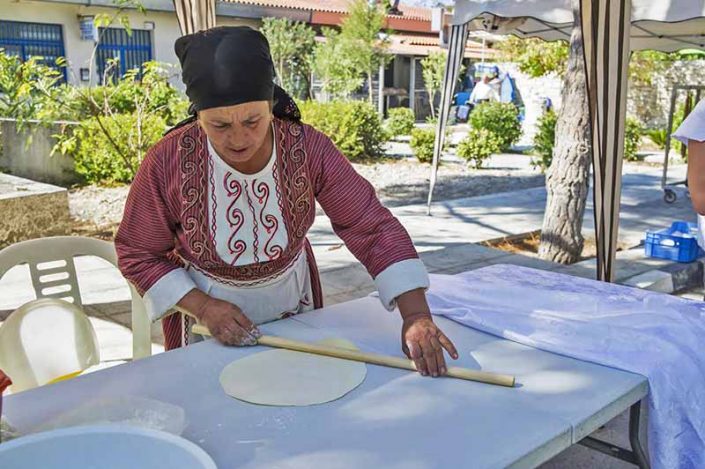

HIGHLIGHTS:
Vouni Panayia winery
Take the opportunity to discover the world of Cyprus wine and viticulture. The people at Vouni Panayia blend tradition with innovation, experience with knowledge and create quality wines, from selected grapes of indigenous rare varieties cultivated in the winery's vineyards at an altitude of 1000 meters, with great care and respect to the exceptional viticultural character of the area. A traditional museum and a lovely tasting room are there to expand your knowledge and senses.
Before the final stop of this full day excursion at the Statos village, we take a break to enjoy a meticulously prepared Cyprus coffee. On our way we pass from the village Vouni Panayia, the birthplace of the late Archiebishop Makarios III - first President of the Republic of Cyprus.
Amargeti Village
Indulge your self in a memorable journey where travel meets gastronomy and tradition meets flavour!
To be welcomed with a glass of wine and remember just how nice it is to connect with people...to hear their stories, and encounter with local flavors of old school cooking!
Amargeti, a village of unique beauty with magnificent archaeological findings, is located east of the town of Paphos and belongs to the geographical region of Ampelochoria.
The scenery is divided by the river network consisted by the river Ezousa on the west and the river Xeropotamos on the east.
The naming of the village, is possibly connected to the female Frankish name Amargueti, which was really common in the court of the Louisianans. Both, during the period of the Frankish and Venetian occupation, Amargeti belonged to a feudal lord.
The archaeological site of Amargeti is known for its sculptures and inscriptions from bases of statues which belong both to the Hellenistic and Roman Era. As well as figurines and pottery that were also discovered in the area.
The circular walking path with signs of geological interest concerning the formation of many villages, with cultivation, vegetation, fauna, and birdwatching points, is o pole of attraction to nature lovers.
Folkloric Museum
The Folklore Museum of the village, presents tools of many traditional professions such as the one of the shoe maker, the horseshoe fixer, the blacksmith, the bee keeper, the barber, the shepherd, the farmer and the weaver. Moreover, also displayed is the equipment of a traditional house which includes kitchen utensils of a traditional kitchen and the traditional metal bed of the bedroom.
Yeroskypou village
Travelling East of Paphos we reach the village Yeroskypou- (Holy Garden)
A village devoted to a Goddess!
The village got its name from the Holy Gardens that according to mythology the Goddess kept her gardens.
Maintaining it's graphical character, Yeroskypou has been developed into a small modern town, a combination of tradition and modernity.
Aphrodite Delights
Delight by name...Delightful by nature!
A Protected Geographical Indication product!
Time to taste the famous Yeroskypou delights and take its sweet taste home!
A treat in a local workshop will enlighten us on everything we need to know about this traditional product.
PICK UP LOCATION OPTIONS
| PICK UP/DROP OFF | LOCATION | TIME |
|---|---|---|
| LIMASSOL | MACDONALD'S POLEMIDIA PARKING LOT | 09.00 |
Yeroskypou village
We offer convenient pickup from the following locations: